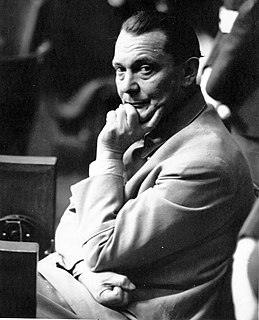A Quote by Stephen Kinzer
As British and French imperialism ebbed following the end of the Second World War, America became the main outside player in Arab affairs.
Related Quotes
The Second World War had a precipitating effect in that it discredited the empires, as well as bankrupting them. Not only could you no longer, if you were a colonial subject of France in Africa, look to France as a model of power and influence and civility after what had happened in the war. Nor could the French any longer afford to run their empire. And nor could the British, although they were not discredited in the way that the French were.
The number of those who have to be assimilated to the majority is not too high. It remains small compared with the numbers of the majority. But there is one thing - and that is the main reason for this digression - that French and British have in common: to this day they have an immense pride in being French, in being British. The fact that in the meantime both have come down to earth a little has not yet affected their pride in their own nationality and the fact that, if I may express it that way, they are mutual admiration societies: how fine the British are, how fine the French are.
The history of Israel-Palestine conflict cannot be understood without its underlying emotional meanders. The emotional frameworks of the loss of Palestine for the Arab-Islamic world touched deep scars that go back to the Crusades, symbolizing a proof of Arab-Islamic decay, political impotence, and perceived (British/French) betrayal and antagonism.
Is it not tragic, for example, that while in the last World War almost everyone believed it was the war to end all wars and wanted to make it so, now in this Second World War almost no writer that I have read dares even suggest that this is the war to end all wars, or act on that belief? We have lost the courage to hope.
History of America, Part I (1776-1966): Declaration of Independence, Constitutional Convention, Louisiana Purchase, Civil War, Reconstruction, World War I, Great Depression, New Deal, World War II, TV, Cold war, civil-rights movement, Vietnam. History of America, Part II (1967-present): the Super Bowl era. The Super Bowl has become Main Street’s Mardi Gras.
To me there are two Hitlers: one who existed until the end of the French war; the other begins with the Russian campaign. In the beginning he was genial and pleasant. He would have extraordinary willpower and unheard-of influence on people. The important thing to remember is that the first Hitler, the man who I knew until the end of the French war, had much charm and goodwill. He was always frank. The second Hitler, who existed from the beginning of the Russian campaign until his suicide, was always suspicious, easily upset, and tense. He was distrustful to an extreme degree.



































